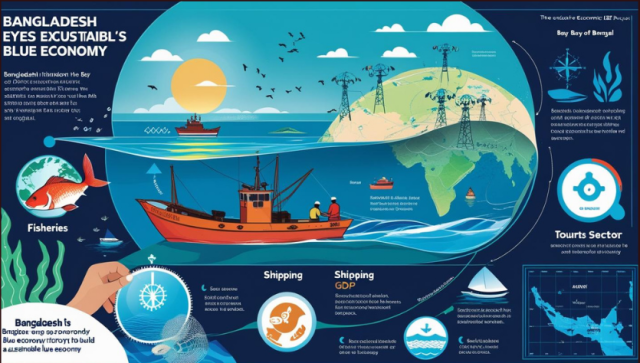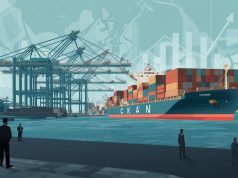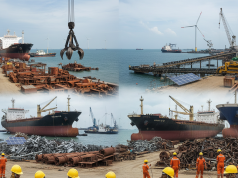From Kamrul Islam, Chattogram:
To address the challenges of climate change, food security, renewable energy, and economic diversification, Blue Economy is gaining increasing importance across the globe. The core objective is to ensure sustainable economic growth by responsibly utilizing marine resources.
While coastal nations worldwide are investing heavily in this sector, Bangladesh, despite gaining an expanded maritime boundary over a decade ago, still stands at the threshold of possibilities.
Global Perspective:
According to the United Nations and World Bank, the Blue Economy generates nearly 3 trillion USD worth of economic activity annually.
Globally, around 3 billion people depend on the ocean for their livelihood and food. Developed nations consider the Blue Economy a strategic pillar of their economic planning.
Indonesia has declared the Blue Economy as a driver of national growth and has increased investment in maritime transport, tourism, and marine farming.
China’s Blue Economy strategy includes marine biotechnology, offshore renewable energy, and deep-sea mining.
African coastal countries are also partnering with international agencies to boost income from marine resources.
The Blue Economy is now at the center of global dialogue. The United Nations Sustainable Development Goal 14 (SDG 14) focuses directly on the sustainable management and protection of ocean resources.
Bangladesh Context:
Following the resolution of maritime boundary disputes with Myanmar in 2012 and India in 2014, Bangladesh acquired a vast maritime area of 118,000 square kilometers.
This Blue Economic Zone holds:
- Abundant fish and marine biodiversity,
- Potential reserves of gas and minerals,
- Prospects for marine tourism,
- Scope for port development,
- Marine transportation and shipbuilding opportunities.
The Government of Bangladesh formulated the “Blue Economy Policy 2020,” under which 26 ministries and departments are to be coordinated to establish a national roadmap.
However, implementation has been slow. Investment in marine research and innovation remains inadequate. A lack of skilled manpower, coordination gaps, and infrastructural weaknesses are hindering progress.
Opportunities vs. Challenges:
Currently, Bangladesh’s ocean-based economy contributes only about 3 percent to the national GDP. Yet, with proper planning and investment, this could potentially double by 2030. Expanding the Blue Economy through eco-friendly marine resource management, modern fishing technologies, deep-sea exploration, blue energy, and marine tourism is a viable path forward.
The Blue Economy is not just about development—it is a key to a sustainable future. For Bangladesh, it can emerge as a new source of foreign exchange, employment, and strategic security.
However, this requires clear leadership, long-term policy planning, international cooperation, and the development of skilled human resources.











